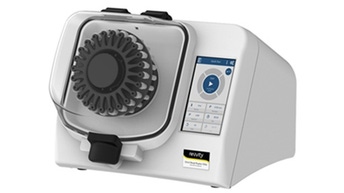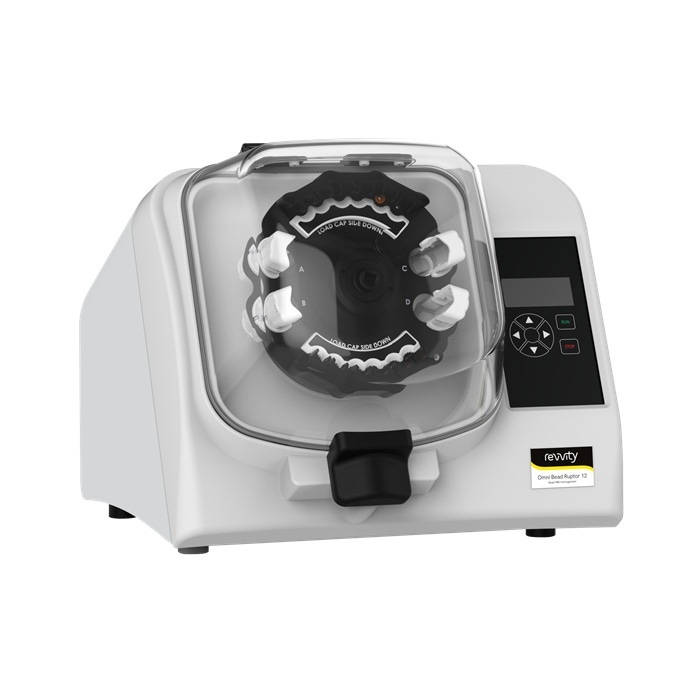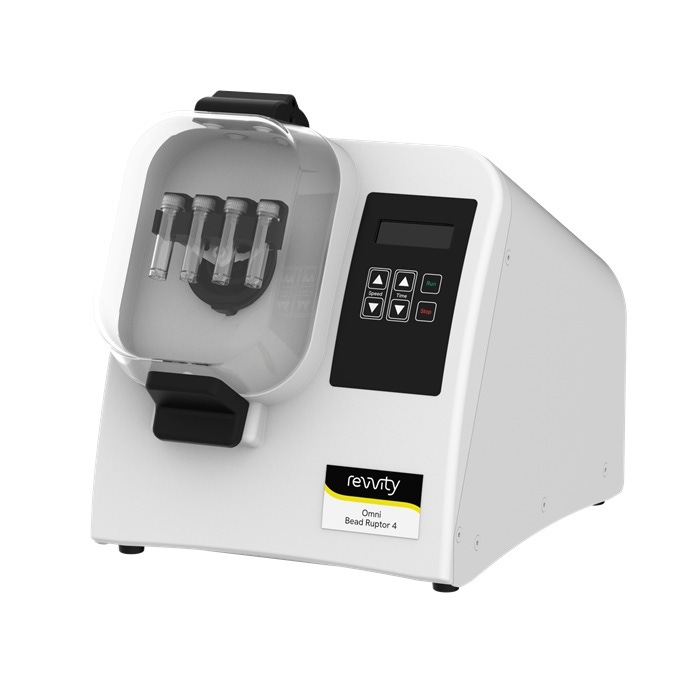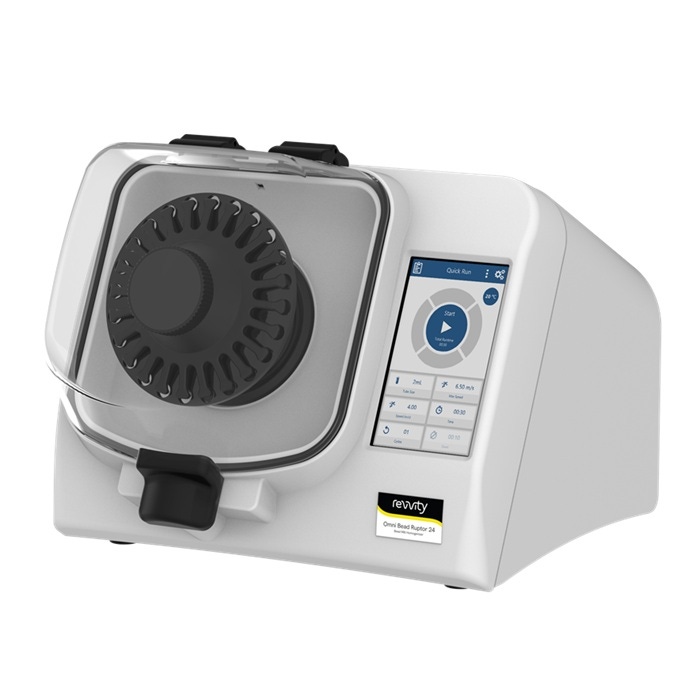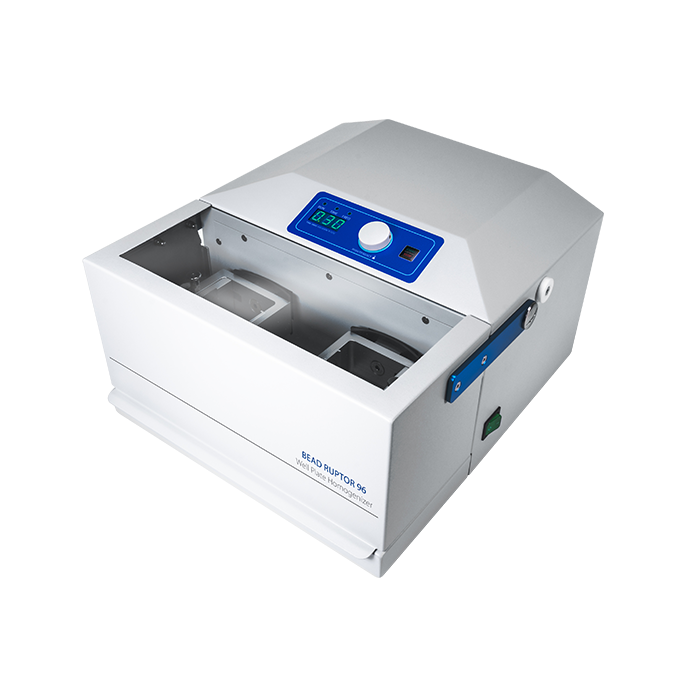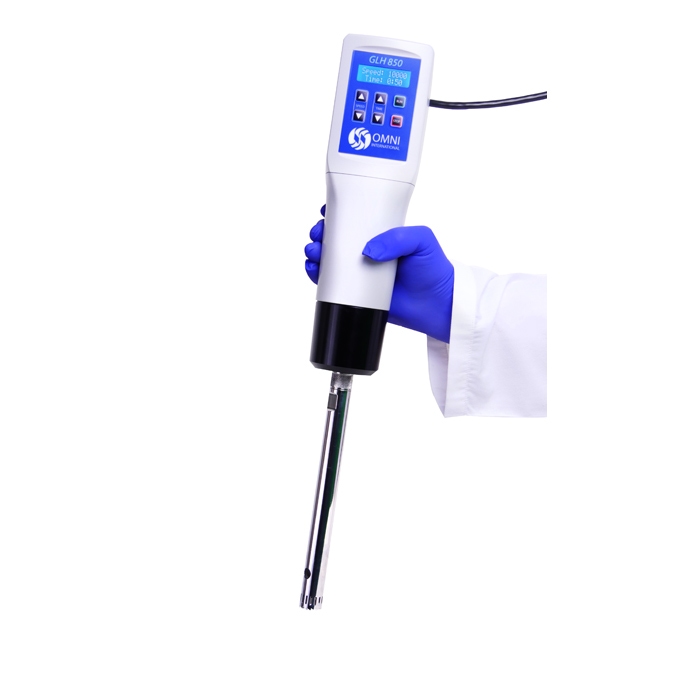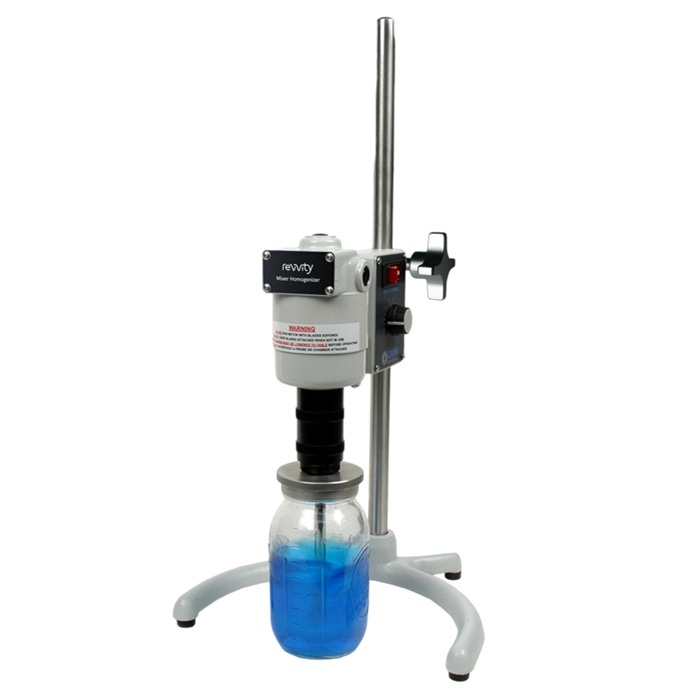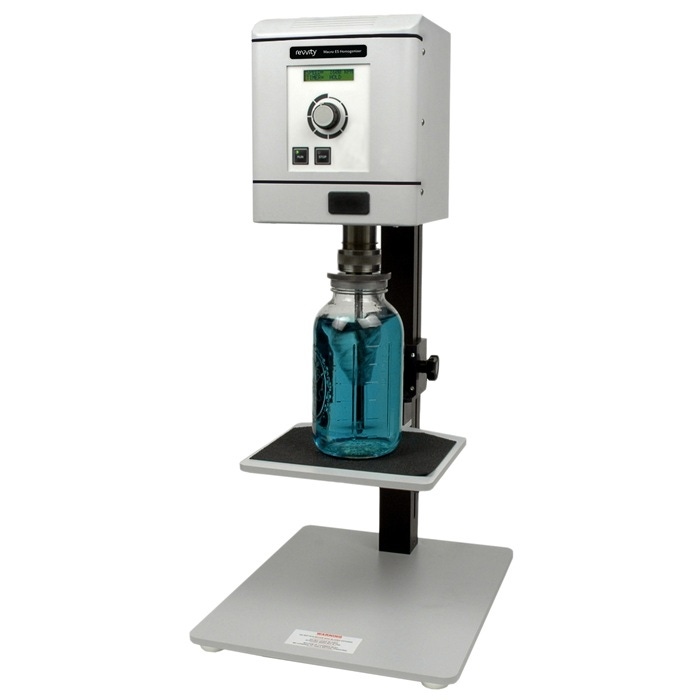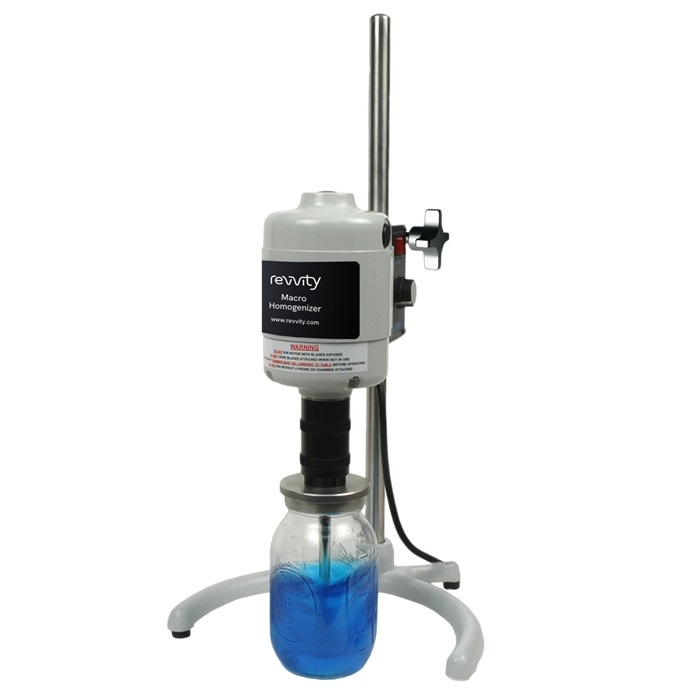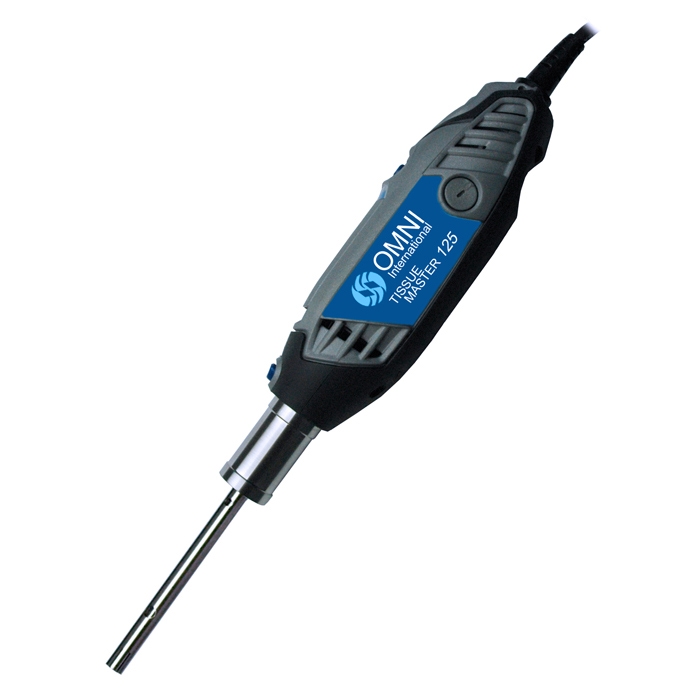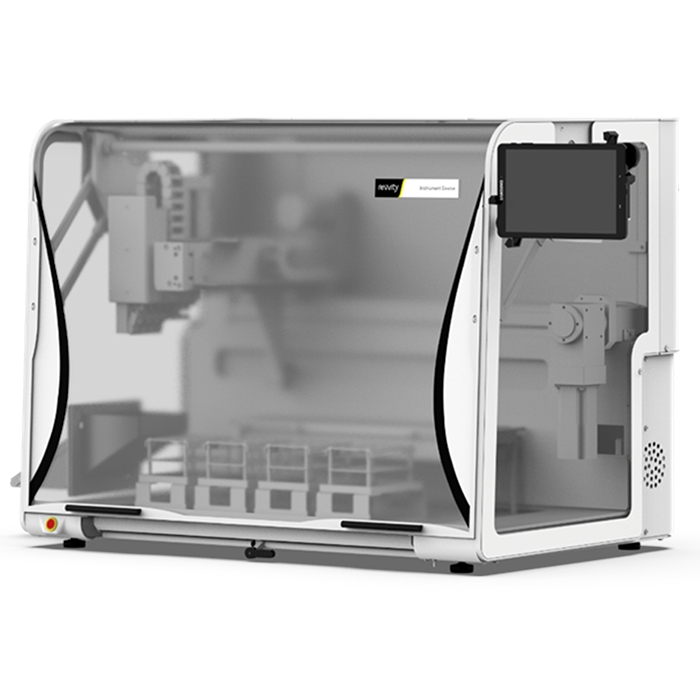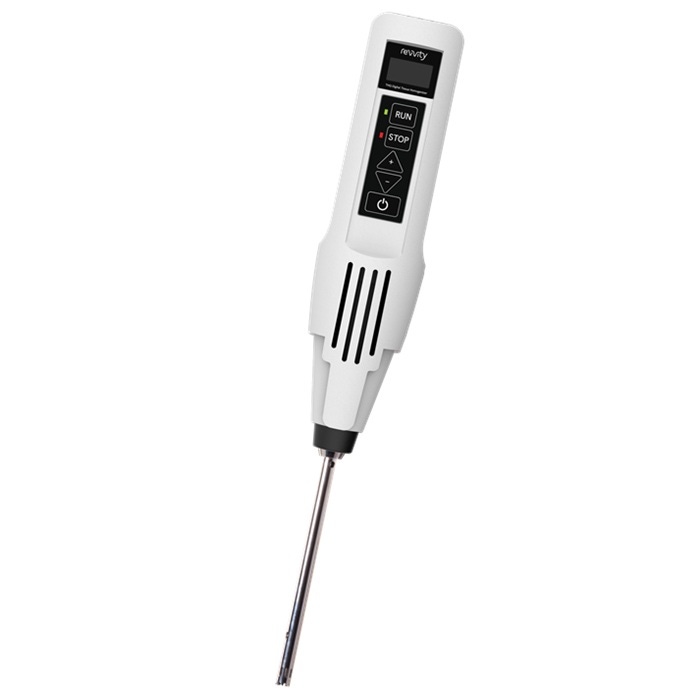Choose from our homogenizers for your lab need and industry.

Biological and life sciences
Homogenizers are widely utilized in biological and life science research for the extraction of proteins, DNA, RNA, and other cellular components. They aid in cell disruption, tissue homogenization, and the release of analytes, allowing researchers to study cellular processes, conduct genomic analysis, and explore bio-molecular interactions.
Check out our popular application notes on extraction of immune mediators/cytokines from skin, comparative RNA extraction data across multiple different sample acquisition/storage parameters on three types of tissues, and metagenomics.
Homogenizers are widely utilized in biological and life science research for the extraction of proteins, DNA, RNA, and other cellular components. They aid in cell disruption, tissue homogenization, and the release of analytes, allowing researchers to study cellular processes, conduct genomic analysis, and explore bio-molecular interactions.
Check out our popular application notes on extraction of immune mediators/cytokines from skin, comparative RNA extraction data across multiple different sample acquisition/storage parameters on three types of tissues, and metagenomics.

Pharmaceutical and drug development
In the pharmaceutical industry, homogenizers are an indispensable resource in formulating pharmaceutical compounds, as well as pushing forward cutting-edge drug development assays.
They facilitate the blending of active pharmaceutical ingredients with excipients, ensuring uniform distribution and particle size reduction for lipid emulsion preparation, and encapsulation of drugs in nano-particle systems. Homogenizers also play a pivotal role in drug-development assays. By enabling a high-throughput and streamlined sample preparation workflow upstream of ADME and DMPK assays, the bottlenecks are eliminated allowing researchers to bring cutting-edge therapeutics to the pre-clinical and clinical markets.
In extension with precision medicine and CDx, it is important to leverage in standardization of tough or complex biospecimens for pathogen identification such as in dermatophytes from fingernails or vector-borne diseases from ticks.
In the pharmaceutical industry, homogenizers are an indispensable resource in formulating pharmaceutical compounds, as well as pushing forward cutting-edge drug development assays.
They facilitate the blending of active pharmaceutical ingredients with excipients, ensuring uniform distribution and particle size reduction for lipid emulsion preparation, and encapsulation of drugs in nano-particle systems. Homogenizers also play a pivotal role in drug-development assays. By enabling a high-throughput and streamlined sample preparation workflow upstream of ADME and DMPK assays, the bottlenecks are eliminated allowing researchers to bring cutting-edge therapeutics to the pre-clinical and clinical markets.
In extension with precision medicine and CDx, it is important to leverage in standardization of tough or complex biospecimens for pathogen identification such as in dermatophytes from fingernails or vector-borne diseases from ticks.

Cosmetics and personal care products
Homogenizers play a vital role in formulating cosmetic and personal care products, such as creams, lotions, and emulsions. Similarly, tablets or supplements for wellness purposes can benefit from the consistency in particle size reduction to help investigate the quality and integrity of their production process.
They ensure the proper dispersion of ingredients, create stable emulsions, and allow for precise control of active ingredient addition. Using a homogenizer also helps to facilitate batch-to-batch consistency by use of programmable/semi-programmable functions on matrices including wet- and dry-grinding of hair.
Homogenizers play a vital role in formulating cosmetic and personal care products, such as creams, lotions, and emulsions. Similarly, tablets or supplements for wellness purposes can benefit from the consistency in particle size reduction to help investigate the quality and integrity of their production process.
They ensure the proper dispersion of ingredients, create stable emulsions, and allow for precise control of active ingredient addition. Using a homogenizer also helps to facilitate batch-to-batch consistency by use of programmable/semi-programmable functions on matrices including wet- and dry-grinding of hair.

Food and beverage processing
Homogenization is a key process in the food and beverage industry. Homogenizers help create stable emulsions, prevent separation, and improve product consistency.
They are commonly used in inhomogeneous foodstuff and drink component processing to achieve a smooth texture, prevent separation, and enhance product shelf life. Additionally, homogenizers aid in the production of sauces, dressings, juices, and other liquid-based food products, such as in the decarbonation of soda.
Similarly, foods QC processing for traces of pesticide, confectionaries of varying consistencies, and plant materials are but some common applications.
Homogenization is a key process in the food and beverage industry. Homogenizers help create stable emulsions, prevent separation, and improve product consistency.
They are commonly used in inhomogeneous foodstuff and drink component processing to achieve a smooth texture, prevent separation, and enhance product shelf life. Additionally, homogenizers aid in the production of sauces, dressings, juices, and other liquid-based food products, such as in the decarbonation of soda.
Similarly, foods QC processing for traces of pesticide, confectionaries of varying consistencies, and plant materials are but some common applications.

Agriculture
Agriculture - including aquaculture, and forestry - and its practices include precision farming techniques that help enhance efficiency, productivity, and sustainability. Researchers leverage technologies and molecular applications, such as agrigenomics for genotyping and gene-editing/selection, GPS- or GIS- tech to help with crop or livestock monitoring, along with sustainability and environmental-impact surveillance on measurables such as soil health, metagenomics, and the living ecosystem.
Homogenizers enable acceleration of tough plant and fibrous materials, common to agricultural workflows such as seeds/nuts, staple crops, and carcass.
Agriculture - including aquaculture, and forestry - and its practices include precision farming techniques that help enhance efficiency, productivity, and sustainability. Researchers leverage technologies and molecular applications, such as agrigenomics for genotyping and gene-editing/selection, GPS- or GIS- tech to help with crop or livestock monitoring, along with sustainability and environmental-impact surveillance on measurables such as soil health, metagenomics, and the living ecosystem.
Homogenizers enable acceleration of tough plant and fibrous materials, common to agricultural workflows such as seeds/nuts, staple crops, and carcass.

Chemical and industrial applications
Homogenizers find applications in various chemical and industrial processes. They assist in particle size reduction, dispersion of pigments and additives in coatings and paints, preparation of stable emulsions for lubricants and fuels, and homogenization of suspensions and slurries.
Homogenizers contribute to improved product quality, consistency, and efficiency in diverse industrial sectors, including robust recovery of analytes from environmental complexes such as soil/clay.
Homogenizers find applications in various chemical and industrial processes. They assist in particle size reduction, dispersion of pigments and additives in coatings and paints, preparation of stable emulsions for lubricants and fuels, and homogenization of suspensions and slurries.
Homogenizers contribute to improved product quality, consistency, and efficiency in diverse industrial sectors, including robust recovery of analytes from environmental complexes such as soil/clay.
Featured resources


Filters
1 - 16 of 16 Products and services
Processing up to 12 x 2mL and 4 x 7 mL samples per batch, this mid-throughput benchtop unit supports sample volumes from 25 µL to 7 mL in their respective tube sizes, with processing speeds up to 6 m/s. It features front-loading tube holders and patent-pending snap-in carriage for simple operation, as well as optimized bead-beating motions and easy programming for cycle and dwell settings.
Compact unit that processes up to 4 samples in 2 mL, 0.5 mL, or 1.5 mL tubes per batch. An entry-level benchtop homogenizer for labs looking to start their bead-beating journeey, coming from orthogonal techniques. Intuitively simple and economical, it features variable processing speeds up to 5 m/s and time control up to 5 min. It also suports single tube processing for 7 mL tubes.
Processing up to 24 samples in 2 mL tubes per batch, this bench top homogenizer supports stanadard volumes of 25µL to 2 mL, with processing speeds up to 6.5 m/s. Features a fixed tube carriage, intuitive touchscreen interface, compatibility with the cryo-cooling unit, and offers the same unique optimized bead-beating motions as the versatile Bead Ruptor Elite system.
The Bead Ruptor 96 facilitates multi-purpose homogenization, offering a blend of traditional milling and high-throughput capabilities. Delivering cryogenic, well-plate and tube bead-beating solutions, this powerhouse is a comprehensive solution for a multitude of processing needs in a single, space-efficient unit. It is a suitable solution for a variety of applications that require grinding, lysing, and homogenization of biological samples prior to molecular extraction.
The Omni Bead Ruptor Elite is an advanced and easy-to-use bead mill homogenizer. It is specifically designed for grinding, lysing, and homogenizing biological samples prior to molecular extraction. It is designed with a unique carriage motion to ensure that the intra-tube bead movement reduces swirling and results in high-impact bead milling. The increased power of the Bead Ruptor Elite decreases processing time and reduces sample heating to maximize sample preparation efficiency. All Bead Ruptor Tube Carriages Sold Separately.
Take advantage of our LIMITED TIME PROMOTIONAL BUNDLE! The Omni Tissue Homogenizer (TH) boasts a powerful 125 watt motor and handles a wide range of laboratory samples from 0.2 mL to 100 mL in volume. The Omni TH is compatible with a wide variety of generator probes of varying diameters, making it a versatile tool for many lab application requirements. Most tissue sample can be processed by the Omni TH in less than 30 seconds, which frees up your day for other activities in the lab that need your attention! This promotional bundle includes all the components of P/N TH115 and includes a free trial pack of 5 x 12 mm Omni Tip™ plastic disposable probes. These probes can provide researchers additional confidence in avoiding cross-contamination within their sample prep workflows when used as single-use consumables. Note: Generator Probes, Omni Tip™ Plastic Probes, Motor Assemblies, are sold separately and not included in this limited time promotional bundle. For additional important details about the promotion and eligibility, visit our homogenizer promotions page.
The Bead Ruptor 96+ facilitates multi-purpose homogenization, offering a blend of traditional milling and high-throughput capabilities. Delivering cryogenic, well-plate and tube bead-beating solutions, this powerhouse is a comprehensive solution for a multitude of processing needs in a single, space-efficient unit. It is a suitable solution for a variety of applications that require grinding, lysing, and homogenization of biological samples prior to molecular extraction.
With processing speeds up to 25,000 rpm, the GLH 850 homogenizes samples from 200 µL to 5 L with a 850-watt motor and digital speed control (speed accuracy to +/- 100 rpm). For use with our stainless-steel generator probes (5 to 30 mm in diameter) or our proprietary hybrid or plastic 7 or 12 mm Omni Tip probes. Note: Accessories/consumables sold separately unless part of package.
With processing speeds up to 35,000 rpm, the Omni TH homogenizes from 200 µL to 100 mL with a 125-watt motor for quiet operation, with easy quick-connect coupling when switching probes. For use with our stainless-steel generator probes (5 to 30 mm in diameter) or our proprietary hybrid or plastic 7 or 12 mm Omni Tip probes. Note: Accessories/consumables sold separately unless part of package.
With processing speeds up to 18,000 rpm, the Mixer supports homogenization of 0.25 mL to 10 L via its wide range of supporting accessories, including generator probes (10 mm to 30 mm in diameter), blade assemblies (1''or 2''), and sealed glass, plastic, or stainless-steel chambers. Features a 600 watt varible speed motor and speed selection knob to homogenize, blend, and create emulsions.
With processing speeds up to 20,000 rpm, the Macro-ES supports homogenization of 0.25 mL to 30 L via its a wide range of supporting accessories, including generator probes (10 mm to 55 mm in diameter), blade assemblies (1''or 2''), and sealed glass, plastic, or stainless-steel chambers. Features a 1800 watt varible speed motor and digital speed display to homogenize, blend, and create emulsions.
With processing speeds up to 20,000 rpm, the Macro supports homogenization of 0.25 mL to 30 L via its wide range of supporting accessories, including generator probes (10 mm to 55 mm in diameter), blade assemblies (1''or 2''), and sealed glass, plastic, or stainless-steel chambers. Features a 1800 watt varible speed motor and speed selection knob to homogenize, blend, and create emulsions.
With speeds up to 35,000 rpm, the Omni TM homogenizes from 200 µL to 30 mL and is an economically-priced and versatile 125-watt homogenizer for labs expecting little variation in sample volumes using 5 to 10 mm stainless-steel probes. Note: Omni Tip™ Plastic Probes and other non-TM probes are not compatible with this unit. Accessories/consumables sold separately unless part of package.
Omni Bead Ruptor Cryo Cooling Unit Cooling system to protect heat-sensitive samples during homogenization. The BR Cryo Cooling Unit is compatible with the Bead Ruptor Elite and is designed to prevent the increase of sample temperature during the homogenization process.
The Prep 96 is a fully automated sample prep workstation. The design significantly reduces bottlenecks and increases throughput, enabling true walk-away processing in your lab. User-friendly programming makes saving, recalling, or changing existing protocols easy. Probe drive motors feature high-power brushless motors for maintenance-free, ultra quiet sample processing.
With speeds up to 32,000 rpm, the lightweight digital THQ homogenizes from 200 µL to 120 mL with a quiet, eneregy-saving 40-watt brushless motor and offers speed accuracy to 0.5%, regardless of sample size or viscosity fluctuations, with easy probe switching. Use classic probes (5 to 10 mm) or plastic 7 or 12 mm Omni Tips. Note: Accessories/consumables sold separately unless part of package.






























